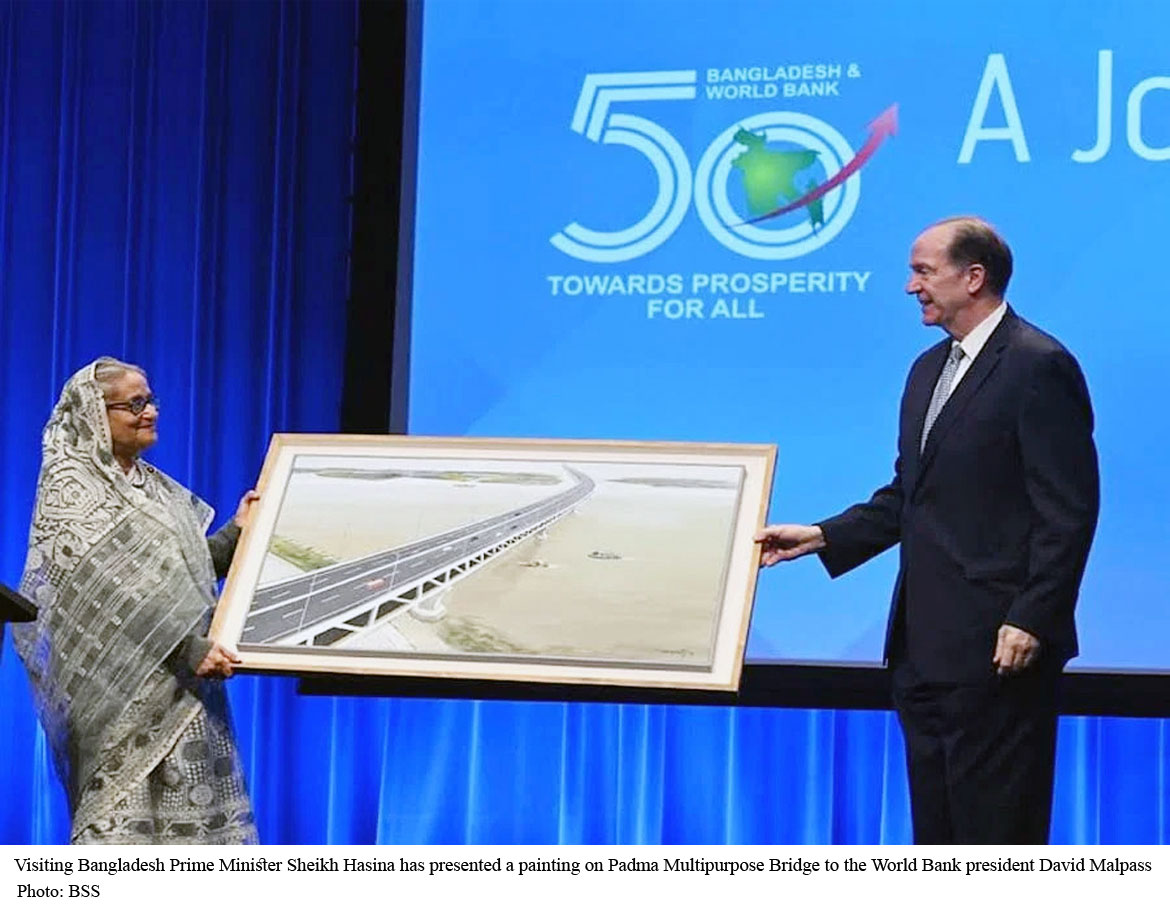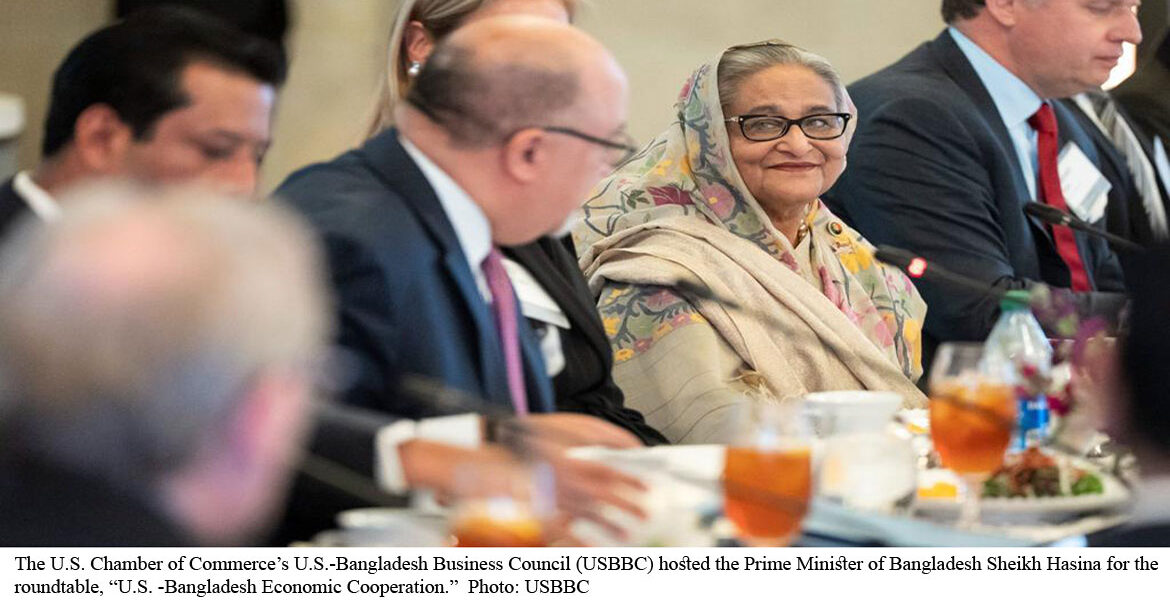Reviewing Bangladesh Prime Minister Sheikh Hasina’s recent visit to Washington, there are several vignettes that stand out. These include an image of the PM handing a framed depiction of the Padma Bridge to World Bank President Malpass — a not very subtle swipe at the latter for the Bank’s refusal a decade ago to fund the bridge’s construction amidst corruption charges. Another image is that of PM Hasina presiding over a meeting of U.S. business representatives hosted by the U.S. Chamber of Commerce, in which the Bangladeshi leader repeated calls for greater investment in her country. On the margins of the visit, senior Bangladeshi and U.S. officials also held the most recent iteration of the bilateral Partnership Dialogue, which was inaugurated in 2014. No doubt, the PM and her supporters will point to these events and images as evidence of the success of her visit and the high esteem which is accorded to Bangladesh in the U.S. There is more to see, however, than the story portrayed in these photos.
Another image from the visit which will likely get less attention by the PM’s apologists is the embarrassing scene of Awami League supporters clashing with opposition protestors outside the World Bank headquarters while the celebration of the Bank’s 50-year Anniversary in Bangladesh was underway inside.

While not a novel occurrence, the chaos on the streets of Washington serves as a vivid reminder of Bangladesh’s dysfunctional politics spilling over international borders. Even more telling was the photo that the PM desperately coveted with President Biden, but which does not exist, as the two did not meet. While Hasina and her supporters will rightly note that this was not an official visit to DC, no doubt the PM would have welcomed a meeting with President Biden. For its part, the US Administration surely would have been more likely to respond favorably to a request if the relationship were warmer. It is reasonable to conclude that US officials felt they had already directly conveyed US concerns about human rights and democracy in earlier meetings, including Secretary Blinken’s recent discussion with his Bangladeshi counterpart. In the end, there was little to be gained from investing POTUS’ valuable time in a meeting with the PM. Having seen how the rest of her visit played out, the White House made the right choice in not rolling out the red carpet for PM Hasina.
Like the elites of many countries, the chattering classes in Dhaka have long tended to overestimate Bangladesh’s importance in the eyes of U.S. policymakers. With war continuing in Ukraine, brutal fighting in Sudan, and numerous other international and domestic challenges facing the Biden Administration, it was no surprise that the President and his team largely ignored PM Hasina’s visit to Washington. In the coming days, pundits in Dhaka will attempt to spin Hasina’s visits to the U.S., Japan, and the U.K. to either demonstrate international support or condemnation of the current regime.

These commentators will parse statements from the World Bank, IMF, Foreign Ministries and others to look for evidence to support their position. The headline that won’t likely be written is the one that is perhaps closest to the truth: Bangladesh and its Prime Minister aren’t nearly as important as they might think.
The lesson that those inside Bangladesh who hope for a better future might draw from the above is both simple and sobering. As long as Hasina’s regime continues on its current political path, there will be little incentive for the United States and like-minded countries to invest more in developing their relationships with Bangladesh. If Bangladeshis want to deepen their international engagement and derive benefits from closer cooperation with the democratic world, their government needs to mend its authoritarian ways. Otherwise, Bangladesh will increasingly be seen and treated like a pariah in the West. The sooner this message sinks in, the better for Bangladesh and its well-wishers around the globe.

